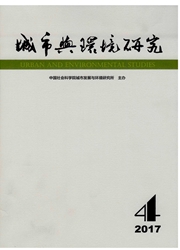

 中文摘要:
中文摘要:
作者基于可持续发展经济学的研究视角,采用人类发展指数和生态足迹分别作为衡量福利水平和自然消耗的指标,运用对数平均迪氏分解法(Logarithmic Mean DivisiaIndex,LMDI)将中国1980年~2008年的福利水平变化分解为自然消耗因素、生产效率因素和服务效率因素。实证结果表明:(1)自然消耗因素是中国改革开放以来福利水平提升的主导因素,对福利水平的拉动作用整体上在不断增强;(2)服务效率因素是福利水平提升的抑制因素,且抑制作用在逐年加强;(3)生产效率因素无论作为拉动因素还是抑制因素,贡献作用皆小于上述两个因素。分阶段的因素分解结果进一步确认了上述结论。结合中国生态环境现状和可持续发展经济学的国际前沿理论,作者认为中国福利水平提升需要由“自然消耗”型向“效率提升”型转变,并提出了有针对性的建议。
 英文摘要:
英文摘要:
From the research perspective of sustainable development economics, this paper has applied the model of Logarithmic Mean Divisia Index to decompose wellbeing level of China from 1980 to 2008 into three factors: natural consumption factor, production efficiency factor and service efficiency factor. Human development index and ecological footprint are employed as the proxies of wellbeing level and natural consumption, respectively. The empirical results show that : (1) natural consumption factor is the dominant factor of the wellbeing level variation and its positive effect is becoming more and more significant; (2) service efficiency factor is the negatively influencing factor of the wellbeing level variation with the increasingly negative contribution; (3) the contribution of production efficiency factor is smaller than that of the two aforementioned factors, no matter positive or negative contribution it is. The conclusions derived from the decomposition results of the three consecutive stages further certify the above statements. Finally, based on the ecological conditions of China and theories of sustainable development economics, some policy suggestions have been put forward for the transformation of "natural consumption" type of wellbeing level increase into the "efficiency improvement" type.
 同期刊论文项目
同期刊论文项目
 同项目期刊论文
同项目期刊论文
 Three Critical Issues in Sustainable Development Studies and the Transition Development of China [J]
Three Critical Issues in Sustainable Development Studies and the Transition Development of China [J] 期刊信息
期刊信息
